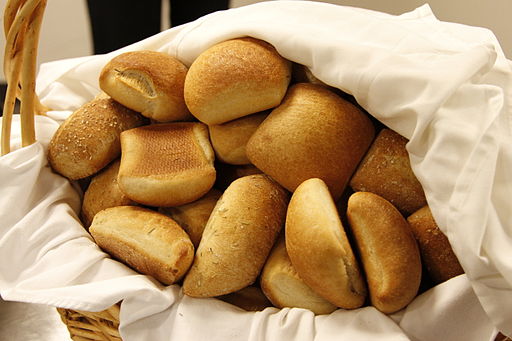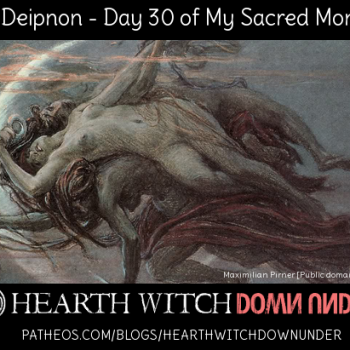
Unnatural Foods
When I say “unnatural foods” I am not speaking of our highly processed foods, but of foods that are not exactly natural while being made up of natural ingredients. Cakes and cookies and breads, cheeses and soups and much more. Such things, with the exception of cheese, were usually made up of the main Greek staples of honey, barley, olives and even grapes. Barley and honey cakes, olive breads, honey cookies, raisin breads and cookies (raisins are grapes after all) are all great little ideas for cooked or otherwise made foods you can offer.
These sorts of things were certainly offered to the Gods by the ancient Greeks, though I don’t have any specific recipes and to be honest I haven’t really searched for them. However, there are many modern recipes using traditional ingredients available all over the place. One thing to keep in mind, if you wish to cook wholly traditional, is that sugar wasn’t in use much, if at all, in ancient Greece – honey was what they used for sweetener, so any recipes that you want traditional should be made with that in mind.
Not Even Food at All
Not all offerings have to be food at all. There are perishable non-food items, such as flowers and leaves that can be offered in a similar fashion as foods. You can offer these with the foods, or you can choose to offer as slightly longer term by preserving them in water in a vase on the shrine. You can even choose to preserve them for even longer by pressing them and maybe even preserving them in glass or something else, and offer them permanently.
Permanent offerings are very much a thing. Anything you place upon a shrine that is dedicated to a or multiple deities, is indeed a permanent offering to those deities. So if you wish to offer coins, gems, stones, metals, jewellery, bones, or anything else, then you certainly can do so, and leave them on the shrine permanently. Some of these can also be offered in the more traditional bury or leave in nature way – stones for the most part are good for this. So long as the place you are leaving them isn’t going to be harmed or marred by them being left there.
Of course there is the main offering as well, incense. Incense, being loose incense, is the most common offering of all and can be used in place of anything else. If you have nothing at all to offer, then burn some incense – and while loose incense is preferable, stick or cone isn’t going to hurt too much.
Be Careful
There is something else that is important to take note of. I mentioned above that it is best to check what is the best offering for specific Gods, because some are better than others and it’s possible some may be offensive in some way. But this is not the only thing you may need to consider. There is still the difference between the Ouranic and the Chthonic deities. Some of what is okay to offer to the Chthonic deities, especially the Underworld deities, are considered to be not okay to offer to other deities.
The problem here is, I am not entirely sure what they all are. I have heard that garlic is something that shouldn’t be offered to Ouranic deities. I have also heard the same regarding pomegranate. But, I don’t actually know if this accurate to proper lore, or if it is more UPG. Sorry I cannot help in this area, perhaps someone reading this will be able to comment with their greater knowledge.
Conclusion
When in doubt, go with the universal offerings – grapes, honey, barley and olives. Incense. And libations of wine (watered down for Ouranic deities) or olive oil. These truly are your no fail go to offerings. If you have nothing else to offer at all, then any one or all of these will do the trick.
I know I haven’t given a lot of information here, for all that I have once again written a way too long post. But hopefully what I have written is of some help. And I should point out that for the most part, I have been speaking of offerings in a more historic and traditional sense, this is not all that we have to work with. We do have modern ideas and UPG to work with too – though of course such things are up to the individual if they wish to follow such ideas or not. Living in Australia where we have native plants that are unique to our land, I personally could never gainsay the use of “new” food offerings.
If you have anything to add, please do so in the comments. I love new knowledge!
















